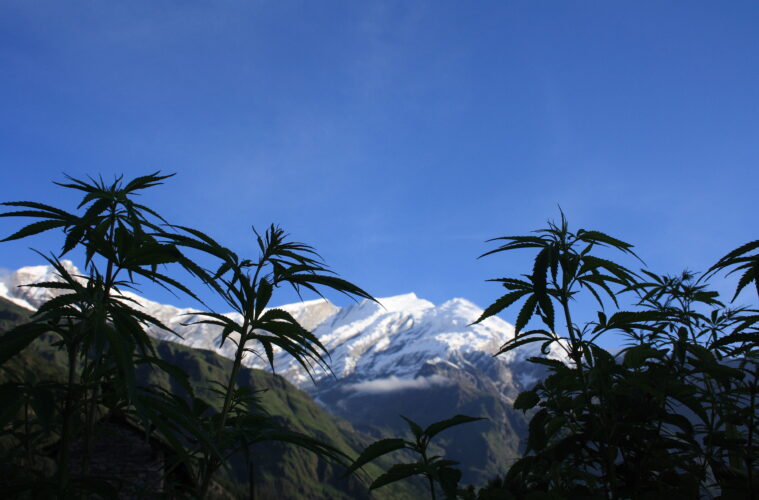The Department of Ayurveda and Alternative Medicine are urging Nepalese officials to remove the country’s ban on hemp flower as the government goes about the process of setting laws and regulations for the industry, according to Hemp Today.
The Ayurveda medicine group is a government health agency, and they said regulatory changes are needed to allow the production of traditional medicines, which have historical roots in the Indian subcontinent. The department itemized 21 Ayurvedic medicines that are currently blocked, of which hemp is one.
The health agency brought up the issue in a recent multi-stakeholder meeting held by the Nepal Health Research Council and the Policy Research Institute in Kathmandu. The goal of the meeting was to explore the medicinal value and economic development potential of hemp. The discussion about rules comes at a time when the proposed Cannabis Cultivation Act would establish a formal program to develop the medical cannabis and hemp sectors that have lost momentum since first being introduced over two years ago.
Hemp fiber and seed are legal in Nepal, but flowers are banned under the country’s Narcotics Drugs Act — thanks to the US’s global War on Drugs campaign of 1976. Cultivating hemp is also illegal, but cannabis and hemp grow wild in Nepal. So, producers harvest those plants for a wide range of uses.
Under the law that was initially proposed in 2020, research and production of CBD would likely be licensed. The measure is intended to advance CBD for Ayurvedic and allopathic healing.
Council research director Meghnath Dhimal urged the government to remove the restrictions on hemp flowers while it navigates the rulemaking process, stressing the benefits of Ayurvedic medicine.
Those who attended the meeting were various types of stakeholders, including agencies working for the prevention and control of narcotic drugs, rehabilitation centers, the Drug Control Section under the Ministry of Home Affairs, the Nepal Law Commission, the Armed Police Force, lawyers, professors, and representatives of civic organizations.
Advocates stressed the economic potential for medical cannabis, saying hemp oil could be a significant source of export revenue for Nepal. Policy Research Institute executive director Bishnu Raj Upreti urged the Home Ministry to draft a regulation to patent Nepalese hemp, due to its use dating back hundreds of years. Home Ministry Joint Secretary Bhishma Kumar Bhusal proposed that hemp from Nepal go by the name “Cannabis Nepaleca.”
Nepalese companies use hemp fiber to make clothes, bags, hats, mats, and household items. Hemp seeds are also on the market as food in Nepal, and seed oil is used in personal care products, such as lotions and creams. Hemp is also commonly used in religious ceremonies and cultural festivals.
Also, under the 2020 draft law, growers wouldn’t have to be licensed to produce, sell, or distribute hemp for food, including but not limited to: Seeds, honey, oil, and drinks, and use of the hemp stalk for industrial purposes.


